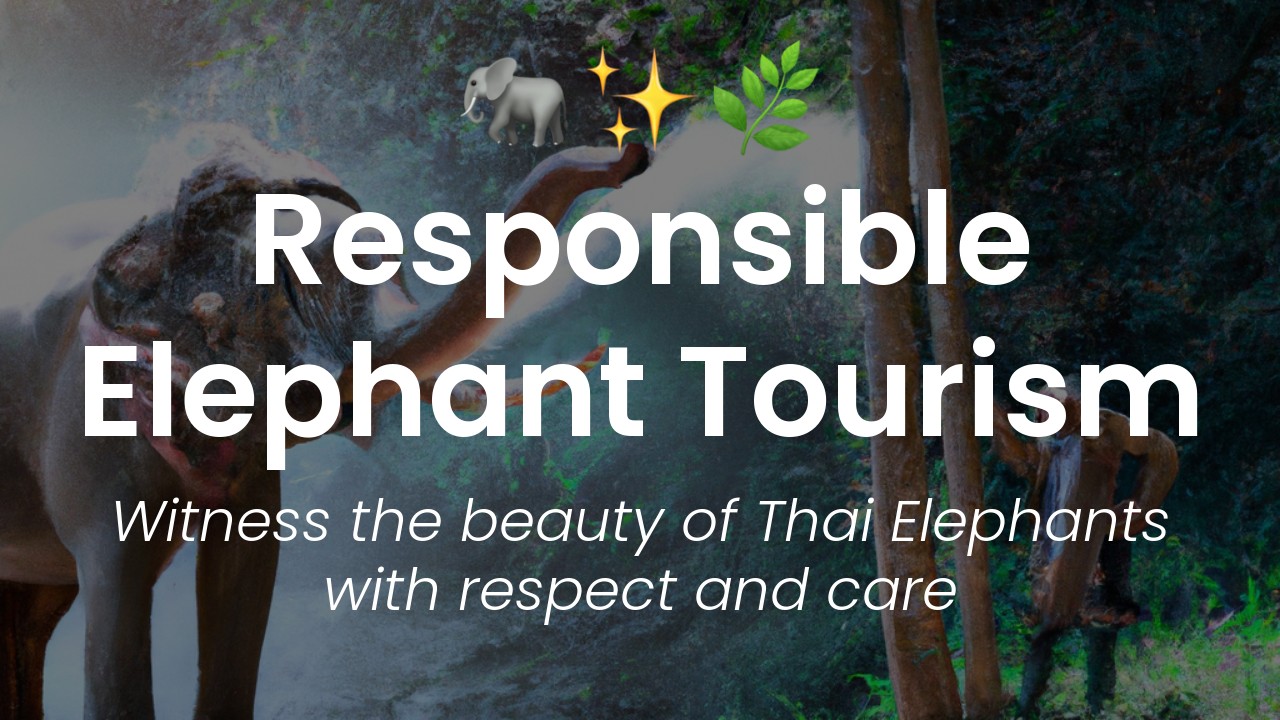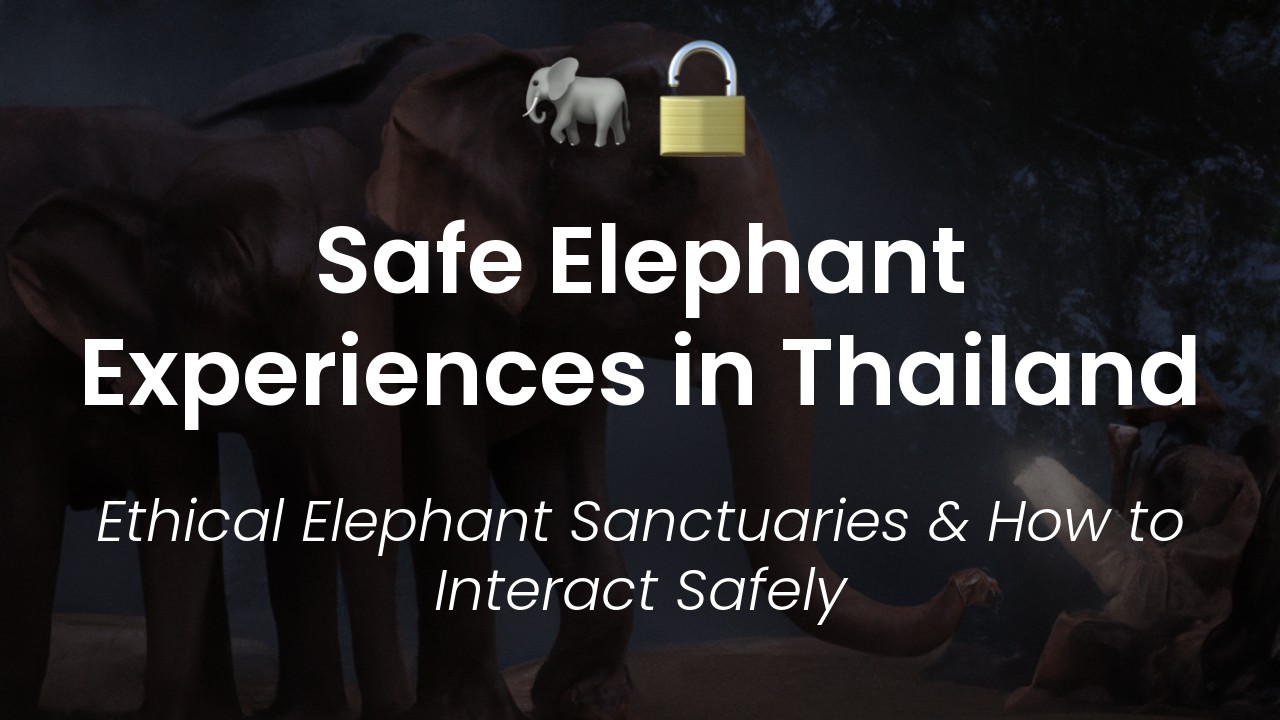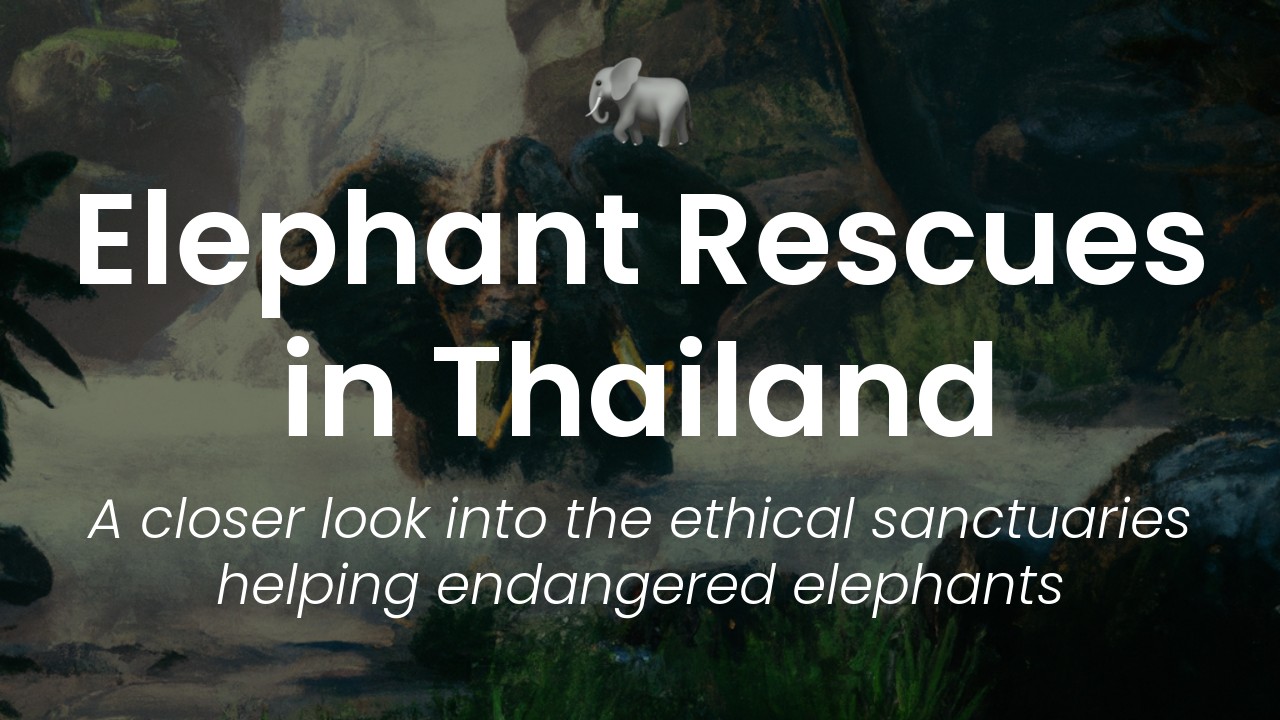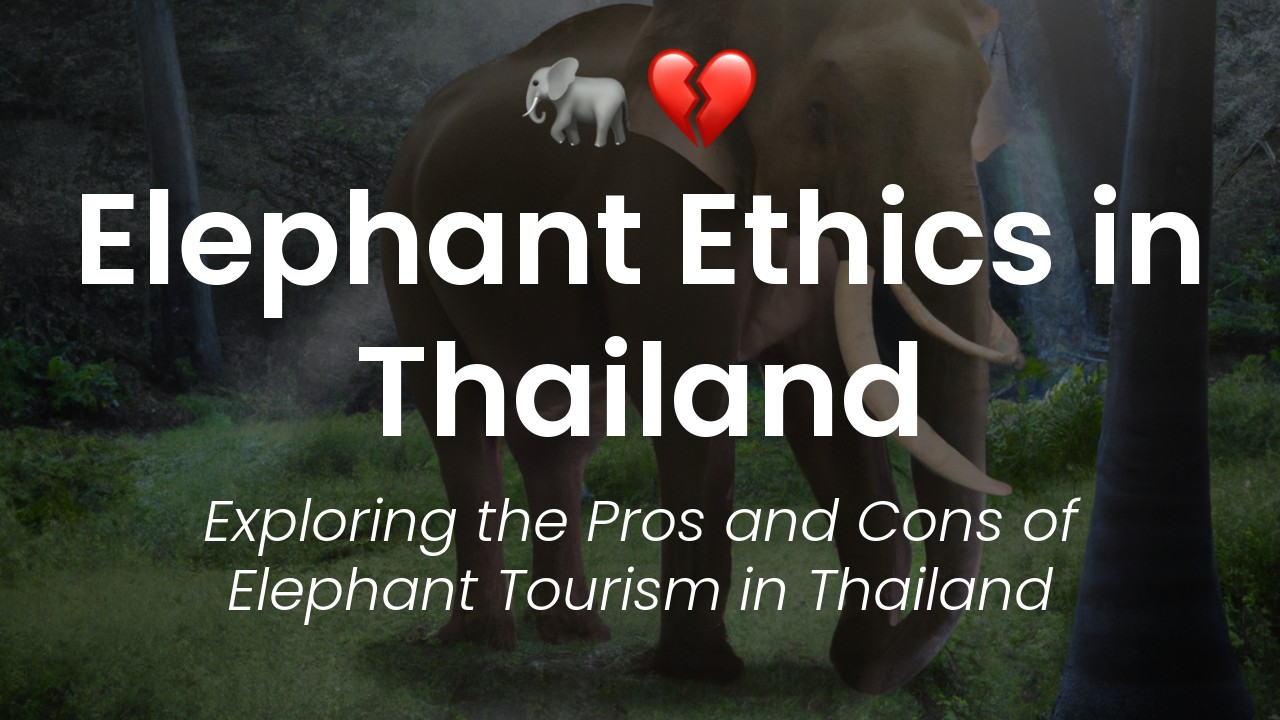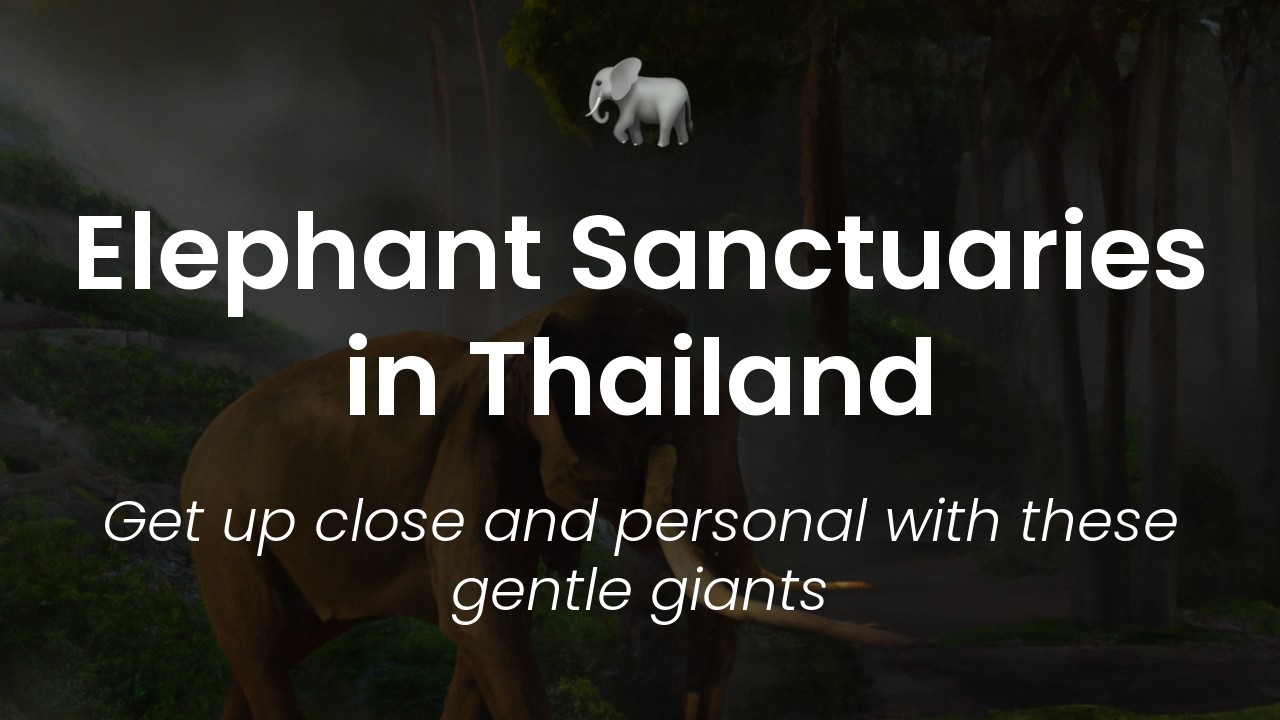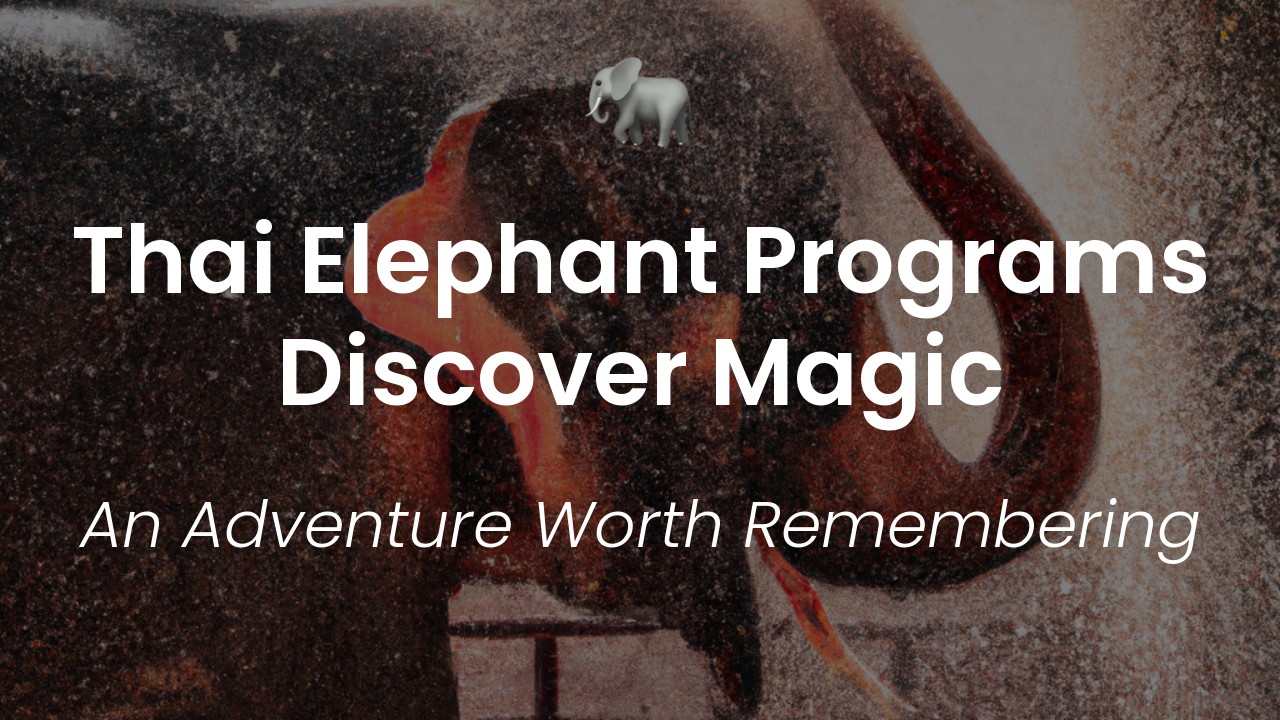I've always loved elephants. They are magnificent, intelligent creatures, with a special place in Thai culture. Known as the "gentle giants," they evoke a sense of awe and wonder that few other animals can match.
However, I also know that the rise of elephant tourism in Thailand has come at a great cost to these animals. Many are mistreated and forced to perform in circuses, carry tourists on their backs all day, or live in appalling conditions.
But here's the thing: elephant tourism, done right, can be magical and responsible at the same time. It can provide a source of income for local communities, while also ensuring that elephants are treated with respect and care.
In this article, I want to share with you some of the best examples of responsible elephant tourism in Thailand. From ethical sanctuaries to eco-friendly trekking experiences, there are plenty of ways to interact with these wonderful animals without contributing to their suffering. So let's dive in and discover how elephant tourism can be done right!
The Ethics of Elephant Tourism
As a proud Thai woman, I cannot deny that elephants hold a special place in our culture and history. They have been domesticated and used for transportation and tourism purposes for centuries. But as a responsible traveler and advocate for animal welfare, I cannot help but wonder about the ethical and sustainable practices behind elephant tourism.
The sad reality is that many elephants in Thailand suffer from mistreatment and abuse in the name of tourism. They are taken from their natural habitats and families, and subjected to harsh training methods in order to perform tricks for tourists. They are often chained and forced to work long hours in hot weather without access to proper food, water or healthcare.
This is why it is important for us as travelers to educate ourselves about responsible and ethical elephant tourism practices. Here are some tips to keep in mind when seeking a magical and responsible elephant tourism experience:
Finding Sustainable Elephant Sanctuaries
One of the best ways to support elephant welfare is to visit a sanctuary that operates under ethical and sustainable practices. Choose a sanctuary that allows elephants to roam freely and socialize with their herd, and that prohibits any riding, shows or performances.
At these sanctuaries, visitors can observe elephants in their natural habitats and learn about their behavior and needs. They can also interact with them through feeding, bathing and walking alongside them. These activities are not only fun and educational, but also contribute to the financial support of the sanctuary and its efforts to rescue, rehabilitate and care for elephants.
Supporting Local Elephant Caretakers
Another way to support responsible elephant tourism is to choose operators who hire and train local mahouts (caretakers) who have a deep knowledge and respect for elephants. These mahouts have a close bond with their elephants and use gentle and positive reinforcement methods to train them instead of using harmful tools or practices.
By supporting these operators, we are not only supporting the livelihoods of local communities, but also encouraging the preservation of traditional elephant keeping practices that have been passed down for generations.
Participating in Responsible Tourism Activities
Even if a sanctuary does not offer elephant rides or shows, it is important to be mindful of other tourism activities that may contribute to animal exploitation or harm. For example, avoid visiting attractions that showcase animals such as tigers, crocodiles or snakes, as these animals are often kept in small cages or subjected to cruel training methods.
Instead, look for activities that promote nature conservation and responsible tourism practices, such as nature walks, wildlife watching, and cultural experiences that involve interactions with local communities.
Avoiding Elephant Rides & Shows
Perhaps the most important factor in responsible elephant tourism is to refuse the temptation of elephant rides, shows or performances. These activities are virtually always unsustainable, unethical and harmful to elephants.
Elephant rides involve the use of heavy saddles which can cause injuries and painful sores on their skin, and put pressure on their spines which can lead to long term health issues. Elephant shows require intense and cruel training methods that involve constant chaining, prodding, hitting and other forms of abuse.
These practices are inhumane and cause immense physical and psychological stress for elephants, who are intelligent and emotional creatures that deserve to be treated with respect and dignity.
Educating Yourself & Others about Elephant Welfare
Finally, one of the most important steps that we can take to ensure responsible elephant tourism is to educate ourselves and others about the importance of animal welfare and conservation. Spread the word about the harmful effects of elephant rides and shows, and encourage others to seek sustainable and ethical elephant tourism experiences.
Support local organizations and sites that prioritize the preservation of animal welfare and environmental sustainability. By doing so, we can contribute to the preservation of our natural heritage and protect these majestic animals for generations to come.
As a responsible traveler, it is our duty to make sure that the tourism activities we choose are sustainable, ethical and compassionate. This is especially true when it comes to elephant tourism, as elephants are sensitive and intelligent creatures that deserve to be treated with respect and dignity.
By following the tips outlined above, we can ensure that our travels to Thailand are not only enjoyable and fulfilling, but also contribute to the preservation and protection of elephant welfare and environmental sustainability. Let's always choose magical and responsible elephant tourism experiences, and let's share the message with others around the world.

